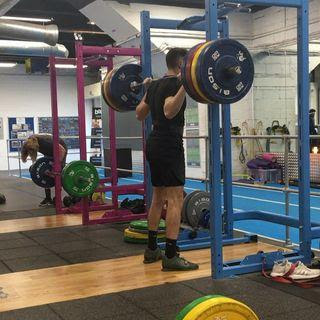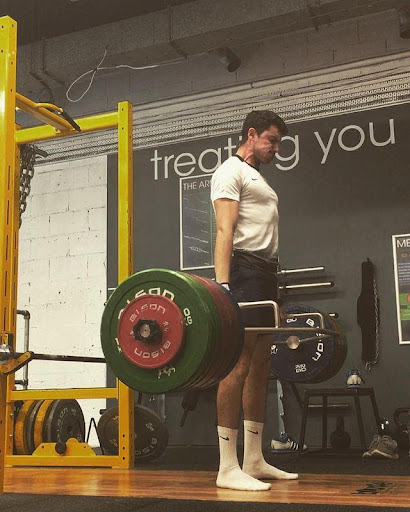Muscle Building and Weight Gain for Runners
Most runners who wish to alter their weight are either looking to gain muscle or lose weight. (This is not to forget those minority of athletes who have taken weight loss to an extreme and are carrying too little fat to be healthy).
We have dealt with weight loss elsewhere, so here we are going to look at how to gain some muscle mass.
It is not an uncommon complaint of novice runners, who took up the sport to try to lose some weight, to hear that they have lost very little. Sometimes this is because they are eating too much but often it is because they have gained muscle mass and have actually lost significant amounts of fat. This is a good thing and we should not necessarily just measure our body's health based on the scales.
Using calipers to give a body fat percentage often tells a better story and it is this which is an important measurement for athletes as a too high or too low reading means it is not possible to perform to our potential.
Long distance runners will often be heard to say things like "if I am lighter I'll run quicker". Whilst this may be true if you are carrying excess fat, in many cases the opposite may be true.

Photo Training with weights
The way I try to explain this to people is as follows. If it is muscles that power our running and a slight person is of the order of 30% muscle, then adding 5% to our body weight as muscle will actually increase our muscle mass by between 15 and 20%. Therefore we have 15-20% more power to push along 5% more weight - which can only make things easier.
Obviously, this has limitations in terms of supply of oxygen to the muscles and therefore our aerobic capacity to run for long periods of time (no-one the size of Jonah Lomu has ever run a fast marathon), but for most athletes on a small scales this will work.
Eating to Gain Muscle and Weight
Weight gain is easy - if you eat more calories than you use, you will gain weight.
However, as an athlete we are generally looking for muscle gain and not just gains in overall weight.
So, to gain muscle mass and therefore power and strength, we need to get stronger. Many athletes who have never done any strength work before will be able to make gains by the use of circuit training (some novice runners who have been sedentary for many years will get stronger legs from running). However, in the long term the best way to get stronger is to lift weights.
When we do strength work we break down the muscle tissues, which react to that by trying to build up stronger than they previously were and therefore grow.

Photo Training with weights
This is a seemlingly destructive process, but provided that you supply your body with the right nutrition it copes very well. Protein is used to rebuild muscles, and there are many food types which are rich in protein. However, the most any athlete is likely to need, in terms of protein intake, is 1.8g/kg that they weigh - any more than this and it is just wasted from a muscle building perspective. Most people analysing their diet will be getting pretty much this amount, so normally protein shakes etc are not all that useful. However, the period straight after training is very important to recovery and at this point it is almost certainly beneficial to absorb protein quickly in a digestible way. Protein shakes (with sugars to help with the synthesis process) or chocolate milk can be very useful at this point.
Sometimes vegetarians may need to supplement their protein intake - but this can be done with eating more nuts etc.
The important thing when gaining weight and muscle is that you don't increase the proportion of your diet that is fats, particularly saturated fats.
Exercising to Gain Muscle
Hypertrophy is the technical name for muscle growth. The ease with which this can be managed in an individual is genetic so will vary a lot, but the principle is the same for everyone. To get this effect from any sort of exercise the guidelines are reasonably simple.
You need to do exercises for 6 - 10 repetitions (repeated 3-5 times with a 2-5 minute gap) of exercises where you could do no more than 15 or so in one maximal set.
As a novice to strength training, this could be a whole range of exercises, predominantly, initially, circuits exercises, such as press ups, squats (to varying depths), sit ups etc.
However, very quickly, you'll be needing to lift weights. The best weights for athletes are ones that involve a large spectrum of muscles, such as Olympic lifts and free weights are almost always preferable to fixed machines - these topics are discussed far more in the Weights section of the site.
The information here is written by athletics coaches who have read widely into the subject and not a sports nutritionist, so is about gearing your food and drink to the practicalities of running.
